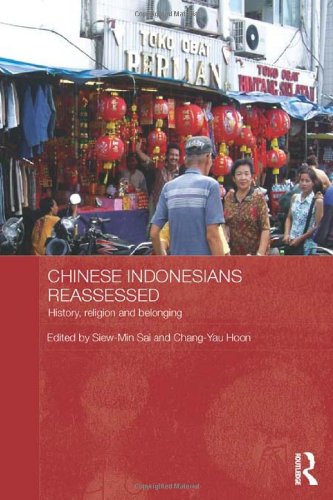

Most ebook files are in PDF format, so you can easily read them using various software such as Foxit Reader or directly on the Google Chrome browser.
Some ebook files are released by publishers in other formats such as .awz, .mobi, .epub, .fb2, etc. You may need to install specific software to read these formats on mobile/PC, such as Calibre.
Please read the tutorial at this link: https://ebookbell.com/faq
We offer FREE conversion to the popular formats you request; however, this may take some time. Therefore, right after payment, please email us, and we will try to provide the service as quickly as possible.
For some exceptional file formats or broken links (if any), please refrain from opening any disputes. Instead, email us first, and we will try to assist within a maximum of 6 hours.
EbookBell Team

0.0
0 reviewsThe Chinese in Indonesia form a significant minority of about three percent of the population, and have played a disproportionately important role in the country. Given that Chinese Indonesians are not seen as indigenous to the country and are consistently defined against Indonesian nationalism, most studies on the community concentrate on examining their ambivalent position as Indonesia's perennial "internal outsider." Chinese Indonesians Reassessed argues for the need to dislodge this narrow nationalistic approach and adopt fresh perspectives which acknowledge the full complexity of ethnic relations within the country. The focus of the book extends beyond Java to explore the historical development of Chinese Indonesian communities in more peripheral areas of Indonesia, such as Medan, the Riau Islands and West Kalimantan. It reveals the diverse religious practices of Chinese Indonesians, which are by no means confined to "Chinese" religions, and celebration of "Chinese" ethnic events. Presenting a rich array of historical and contemporary case studies, the book goes beyond national stereotypes to demonstrate how Chinese Indonesians interact with different spaces and environments to establish new Chinese Indonesian identities which are complex and multi-faceted. The book engages with a larger global literature concerned with diasporic Chinese identities and practices and offers sophisticated and empirically grounded insights on the commodification of ethnic cultures and religions.